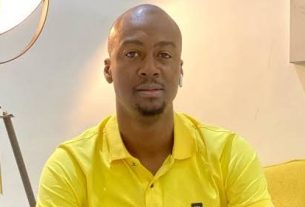The landscape of venture capital investing has seen remarkable shifts over the past few years. As global markets have weathered significant turbulence, new opportunities and challenges have emerged for investors. Harmonix Ventures, an early-stage VC fund, has been at the forefront of this dynamic environment, strategically positioning itself at the intersection of healthcare, life sciences, and deep tech.
In an interview with the Jerusalem Post, Harmonix partner and former MIT and Harvard researcher Krish Ramadurai shed light on the firm’s approach, and the trends they’re observing within these sectors.
“Our fund has been generating alpha while accelerating humanity forward by investing in next-gen compute enabled platform companies,” Ramadurai said. “We’ve had over 20 major scientific breakthroughs across the portfolio. [By making the right investments,] instead of it taking 10 to 20 years for biotech or deep tech to have a fundamental breakthrough, we can now do that in only a handful of years.”
JPost: To start off, what are the top trending technologies and applications that Harmonix is keeping an eye on in the current market? What are the headlining terms on your whiteboard back at HQ?
Ramadurai: About five years ago, there was a convergence of deep tech platforms with health and bio, creating a new breed of full-stack compute-enabled platform companies. These companies use next-gen [computation] to spit out a product or service to market much faster.
We’re excited about tech bio or bio IT companies, which are compute-enabled platform companies in life sciences. It generally takes over 10 years and a couple billion dollars to bring a drug to market and it’s totally not sustainable. We’ve been keen on finding companies that are using compute to generate therapies and drugs much faster and cheaper.
And same thing on the healthcare side. Healthcare is complicated, with separate payers, providers, and patients. We’re automating workflows to get the right treatments to the right patients at the right time, reducing physician burnout and malpractice.
On the deep tech side, we’re investing in critical infrastructure, such as semiconductor manufacturing, satellite communications, and telecom.
How have you seen recent instances of economic turbulence — bank collapses, supply issues, a land war in Eastern Europe — impact your approach to adding startups to your portfolio?
It used to be that you could get cash with just an idea. But now investors want to see if companies actually have a business model and can make money.
It’s interesting to see what types of deals come when there’s hyper-liquidity in the market vs. no liquidity. Given the difficulty in fundraising right now, there’s been a clear precedent for profitability as opposed to growth. In 2021, when there was a lot of cash out there, people were throwing money into things they didn’t understand. There were a lot of “tourist investors” in biotech, people who had never invested in biotech before.
I always tell founders that validation and evaluation should be a one-to-one ratio. You should raise the amount of money you actually need to get to proof of concept or product or market. But most importantly, make sure that you aren’t diluting yourself.
How will Israel’s recent inclusion in the US Visa Waiver Program impact business with your portfolio companies?
It’s important to have expanded access to Israeli talent and to revise the way startups work together and integrate. It’s always great to have great full-stack engineering talent that is available to be stateside and can actually get a taste of what it’s like to have a dual-operating facility.
All of our companies typically have a US-based entity associated with the primary entity. So, they’ll have an office in Israel as well as the US. It’s important to have one foot in both ecosystems because they’re kind of all on different wavelengths.
How would you describe Harmonix’s relationship with the Israeli start-up ecosystem, particularly in light of the ongoing political turmoil surrounding the government’s controversial judicial reform?
Israel is a fantastic tech ecosystem, between all the universities and everything, and there’s world-class talent there. What’s fantastic for us is that we have quite a few Israeli-based founders in our portfolio and [their approach to] software is awesome.
I think going forward, we’re excited to continue collaborating and expanding across the European system as well as Israel.



